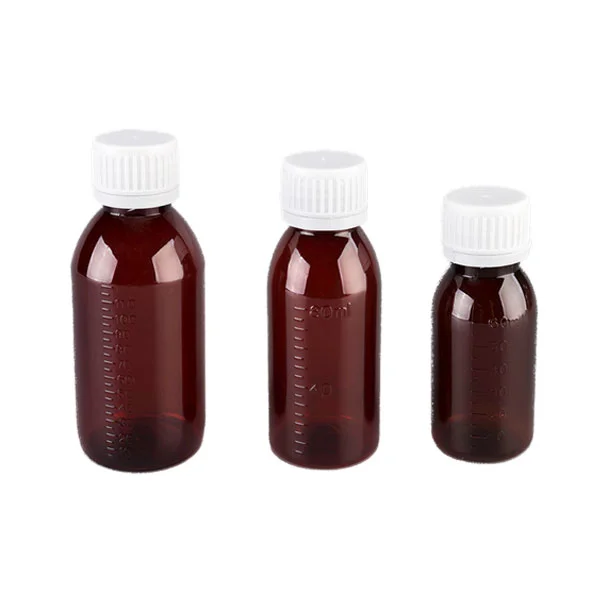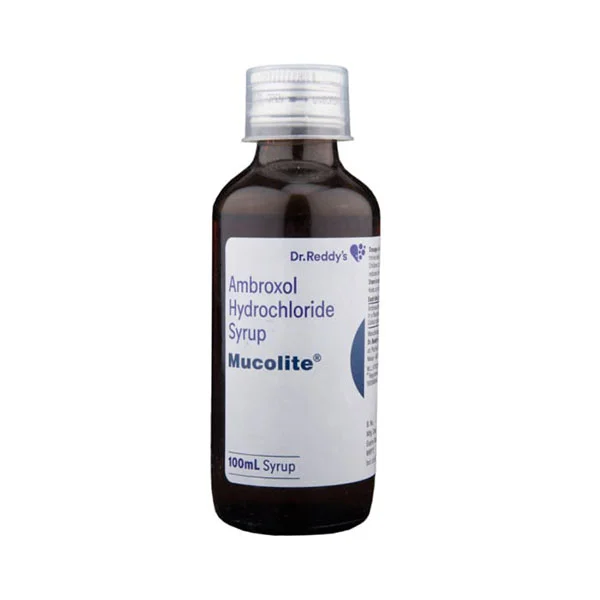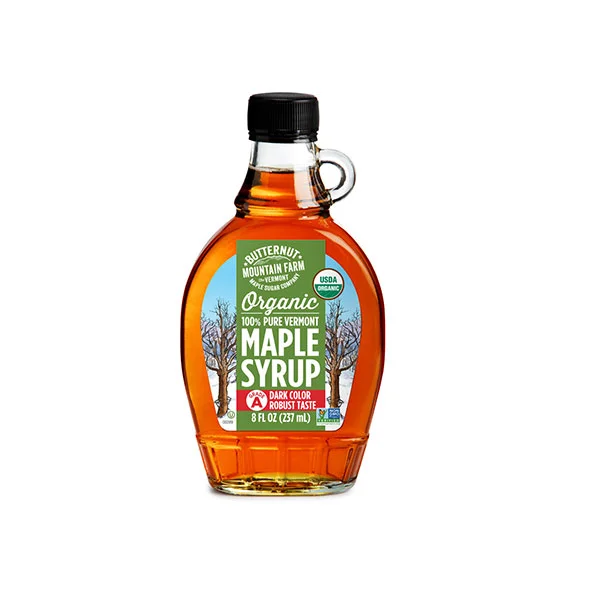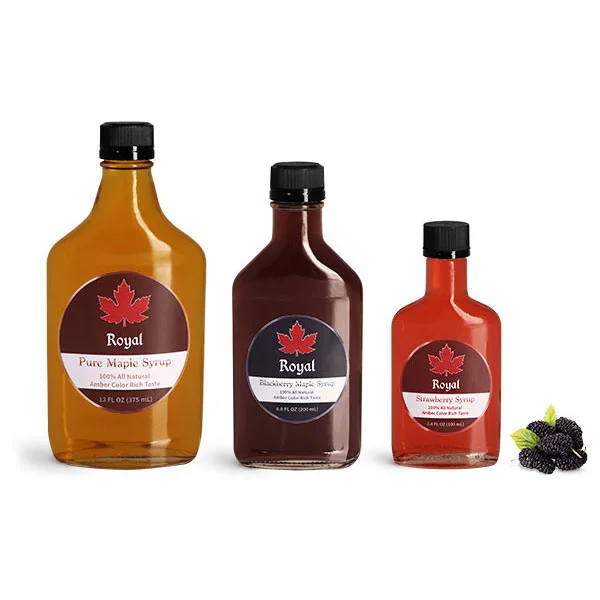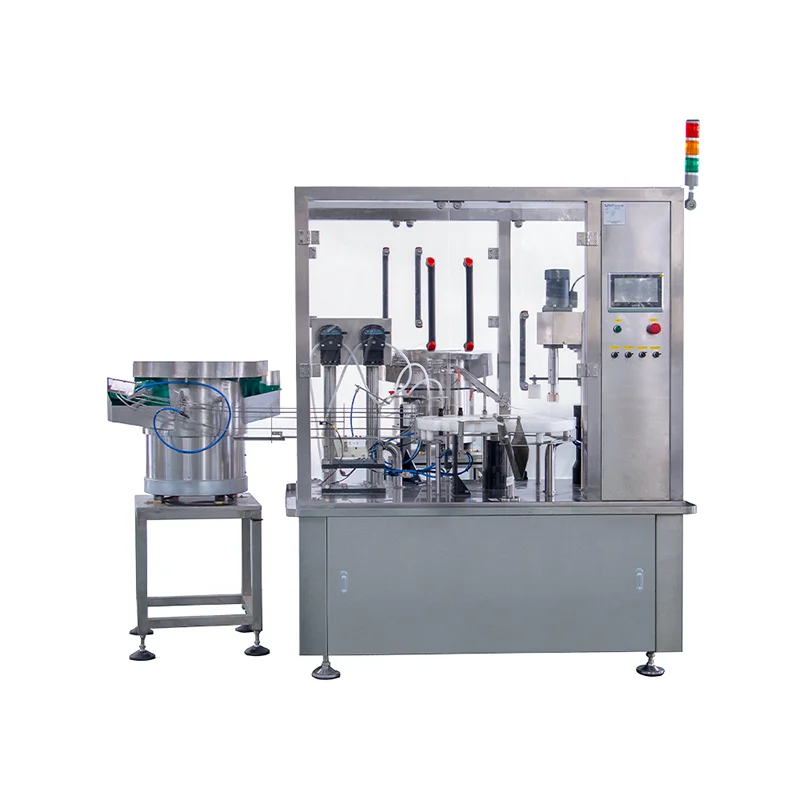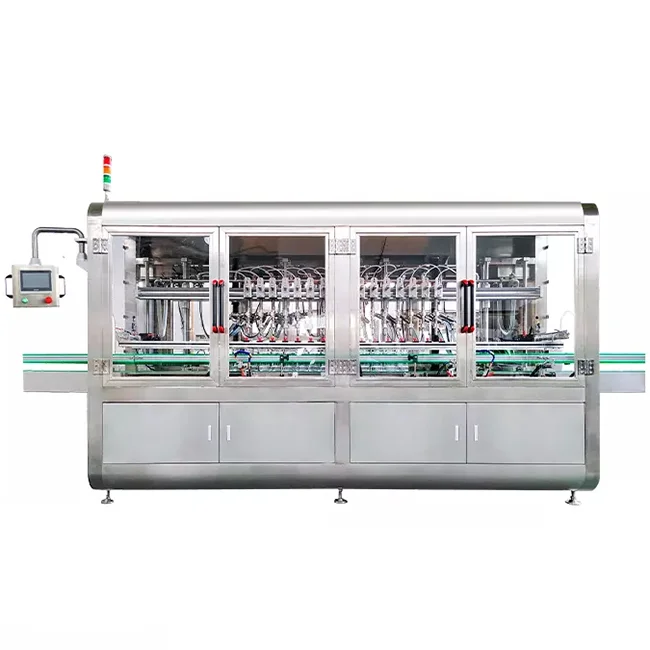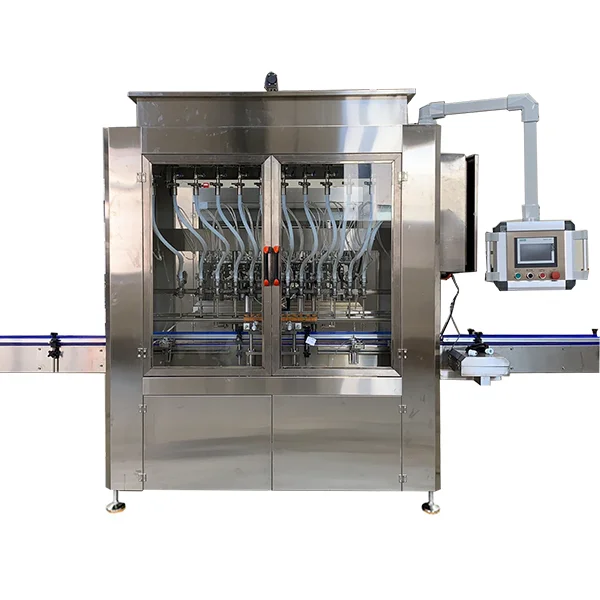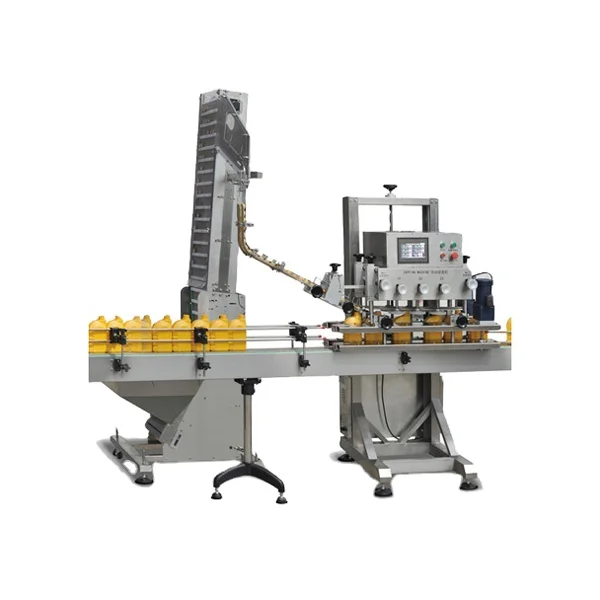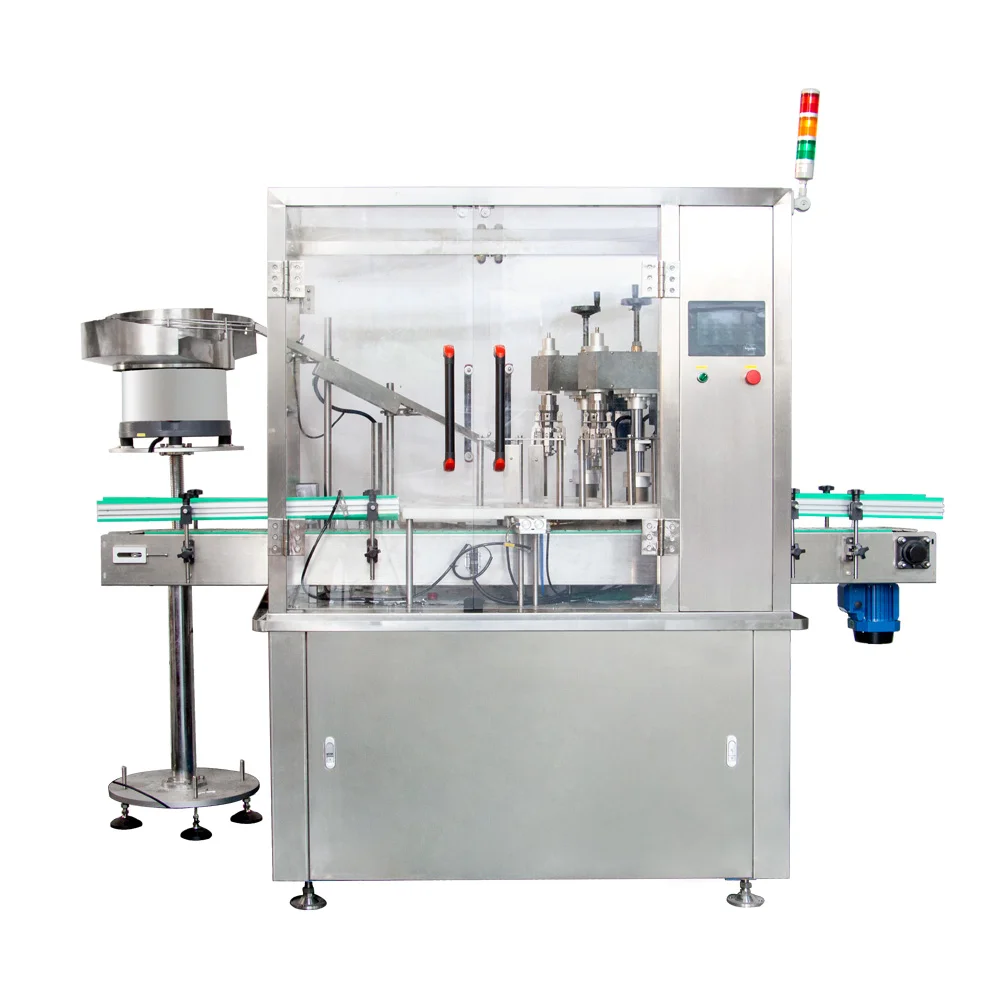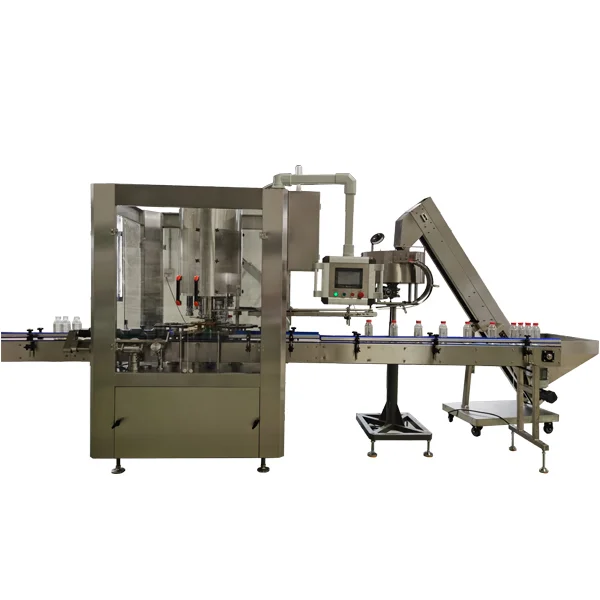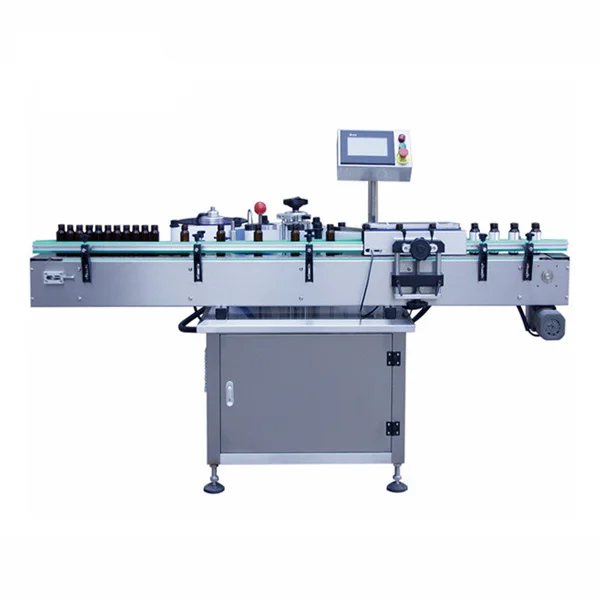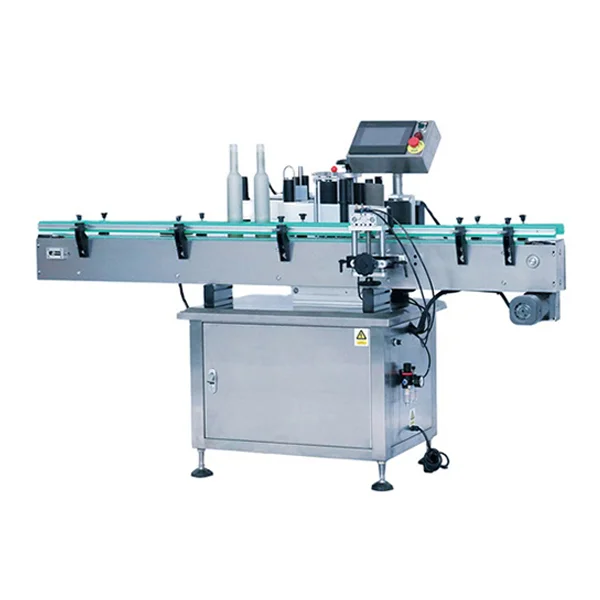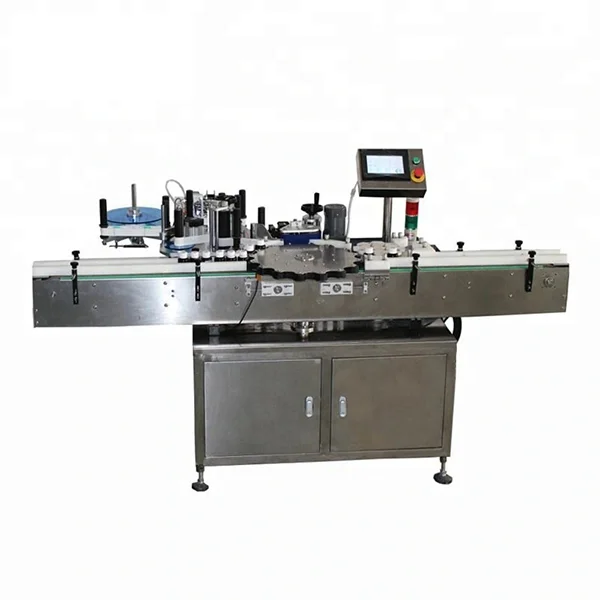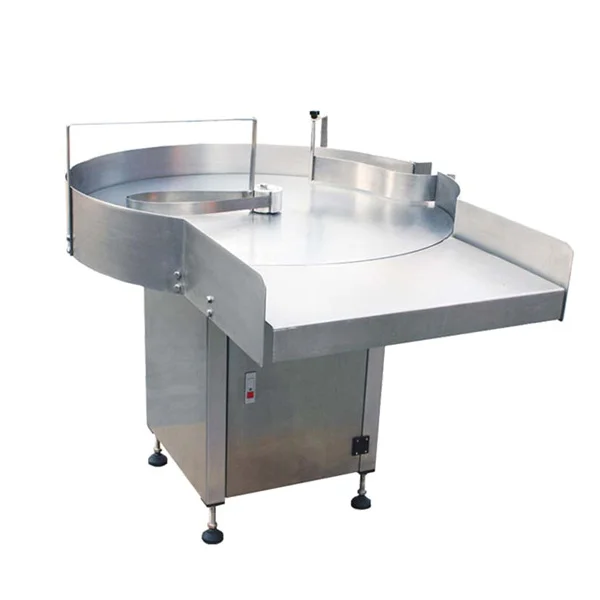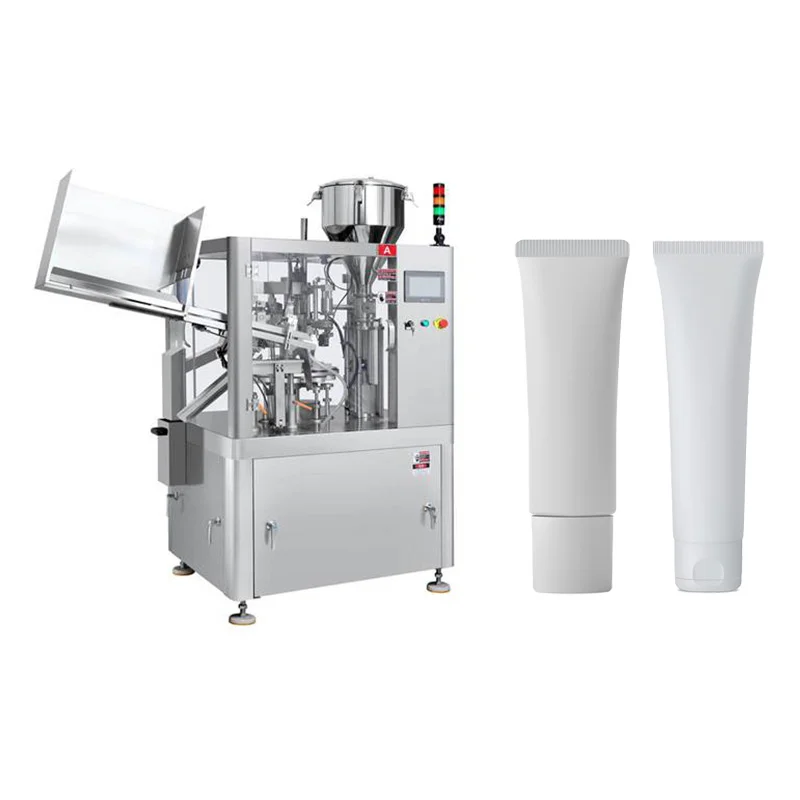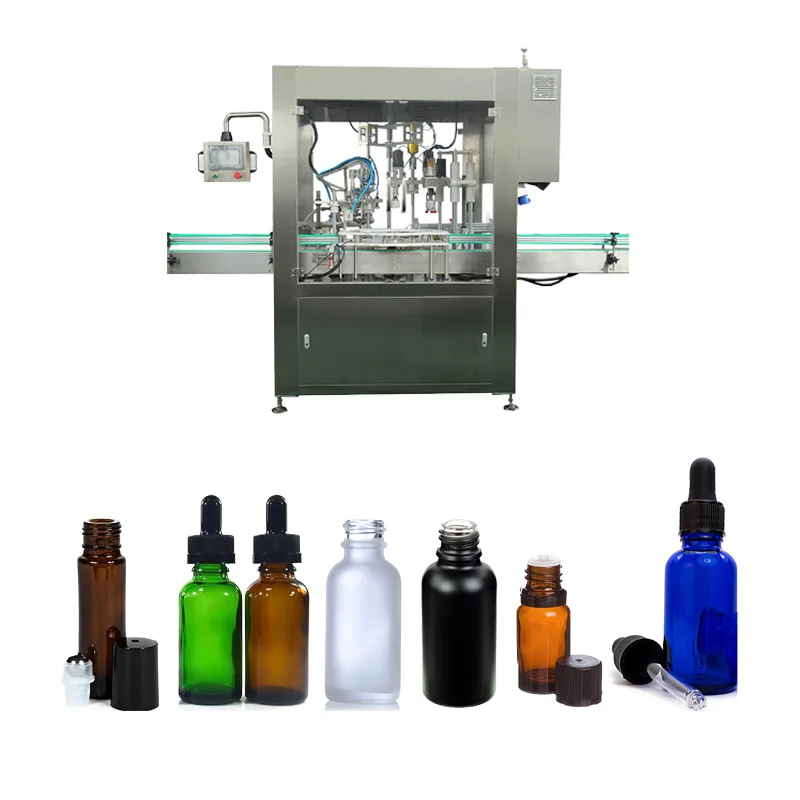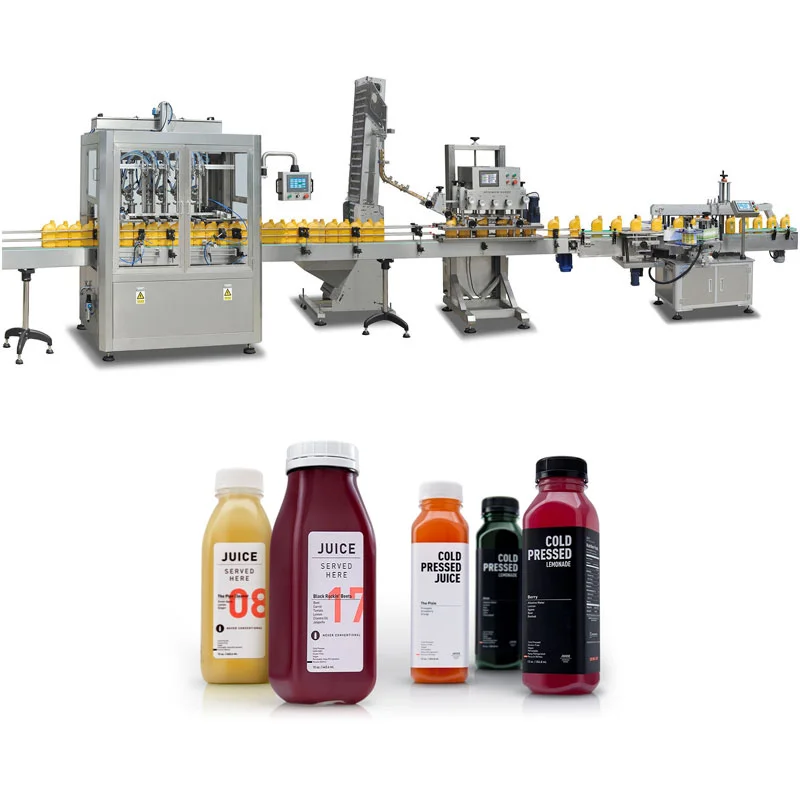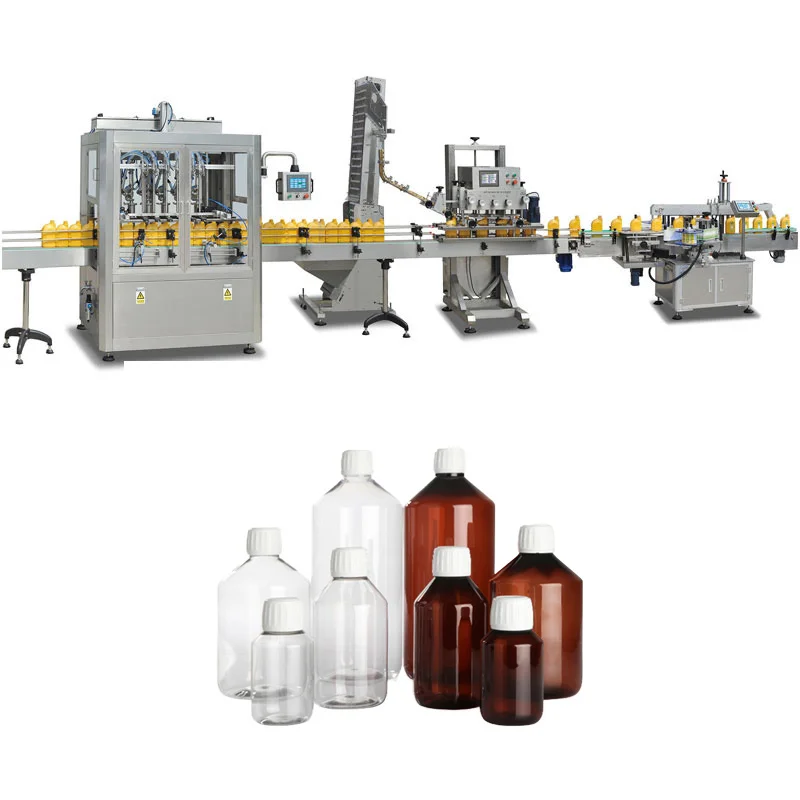
Summary
Syrup is a thick, viscous liquid, containing a large amount of dissolved sugars, but showing little tendency to deposit crystals. In medicine, cough medicine, also known as cough syrup. In cooking, a syrup or sirup is a condiment that is a thick, viscous liquid consisting primarily of a solution of sugar in water, containing a large amount of dissolved sugars.
Solutions to bottle alimentary syrup or pharmaceutical syrup
Syrups, characterized to be sugary, often need to be bottled using a hot-fill process and need to be prepared and packaged paying particular attention. Machines have to be resistant and made of high quality materials. Our bottling machines are the right equipment to fill, cap, and label glass jars or plastic bottles containing either alimentary or pharmaceutical syrup.
View VideoMucokinetics, or mucolytics, are a class of drugs which aid in the clearance of mucus from the airways, lungs, bronchi, and trachea. Expectorants are substances claimed to make coughing easier while enhancing the production of mucus and phlegm. Antitussives, or cough suppressants, are substances which suppress the coughing itself. etc [From Wiki]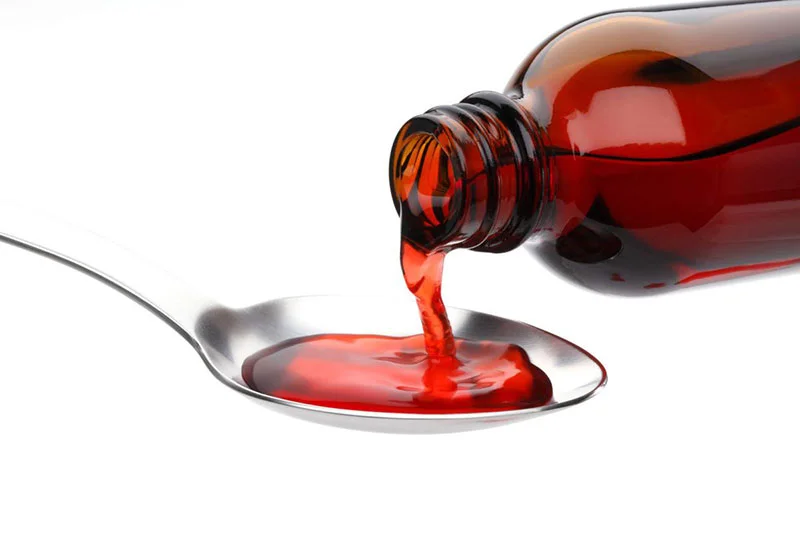
In cooking, a syrup or sirup is a condiment that is a thick, viscous liquid consisting primarily of a solution of sugar in water, containing a large amount of dissolved sugars but showing little tendency to deposit crystals. Its consistency is similar to that of molasses. The viscosity arises from the multiple hydrogen bonds between the dissolved sugar, which has many hydroxyl (OH) groups.
Syrups can be made by dissolving sugar in water or by reducing naturally sweet juices such as cane juice, sorghum juice, maple sap or agave nectar. Corn syrup is made from corn starch using an enzymatic process that converts it to sugars.[From Wiki]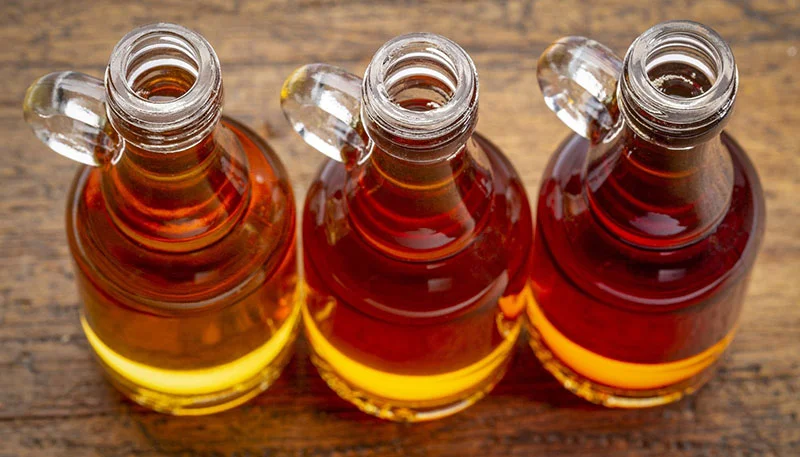
Syrups and other products that are suitable for freezer storage work best in PET syrup bottles, as plastic bottles expand and are shatter-resistant. For syrups that need to have extended refrigerator life, glass syrup bottles are the best option to preserve flavor and quality. Syrups packaged in glass bottles can store in a refrigerator for up to a year and stay fresh when capped properly. Both glass and plastic syrup containers are durable and air-tight with the right closures.
For cough syrup, the bottle capacity is small and there may be bottle inner cap, VKPAK recommends using monoblock filling and capping machine with piston pump quantitative filling for filling part, chuck type capping for plastic cap and ROPP capping machine for metal aluminum cap.
Bottle Rinsing Machines
Many thicker products, like syrup, will fall into the Food and Beverage Industry or even the pharmaceutical industry. When products such as these will be ingested, packaging systems will often require rinsing machines. For most bottles, including many bottles and containers for thicker products, inverting air rinsers or inverting wet rinsers provide an inline solution for cleaning containers both glass and plastic prior to introducing product at the filling machine. However, using syrup as an example, some companies have turned to heavier, thicker glass bottles with unique shapes and sizes.
In these cases, properly inverting the bottles or containers can be a challenge. Shifting or slipping can cause inconsistent rinses or even broken bottles from dropping or relocating on the power conveyor. For such bottles, the inverting rinser will be replaced with a bottle vacuum, which allows containers to stay on the conveyor system while being rinsed, then vacuumed free of dust, debris and contaminants. Bottle vacuums will be incorporated into packaging lines for lower viscosity products as well, but the thicker, heavier and uniquely shaped containers are often found holding thicker, higher viscosity products.
Filling Machines
Typically, thicker products will be filled using either a piston filler or a pump filling machine. Both of these liquid fillers are manufactured to handle products that will not flow freely, assisted either by a pump chosen specifically for the product or by the action of the piston forcing thicker product out of the cylinder.
Both pump fillers and piston fillers can be manufactured with two or more heads, keeping in mind that each individual fill head on a pump filling machine requires its own pump. The assistance of the pump and/or piston allows for more consistent and reliable fills for syrups, pastes and other thick products. These machines can also be built as sanitary equipment to ensure the product does not become contaminated as it passes through the machine.
Hot Fill Applications
Another way that thicker products may be filled using a piston filler, pump filler or even the gravity or overflow fillers normally reserved for thin, free-flowing products, is to heat the product before sending it through the filling machine. Many thick products, including syrups, will change viscosity as they change temperature. By heating a product before running it through the bottle filler, a more reliable and consistent fill may be achieved. Of course, those packaging thick products must take into account the effect on taste, durability, shelf life and any other relevant factors when heating and cooling specific products.
If a product is heated, the packaging line may require a cooling period between filling and capping each item. A serpentine conveyor or other cooling conveyor can be used between the two packaging machines, sometimes also incorporating a fan cooling system. These conveyors simply add a bit of time between filling each bottle and applying the lid via a capping machine.
